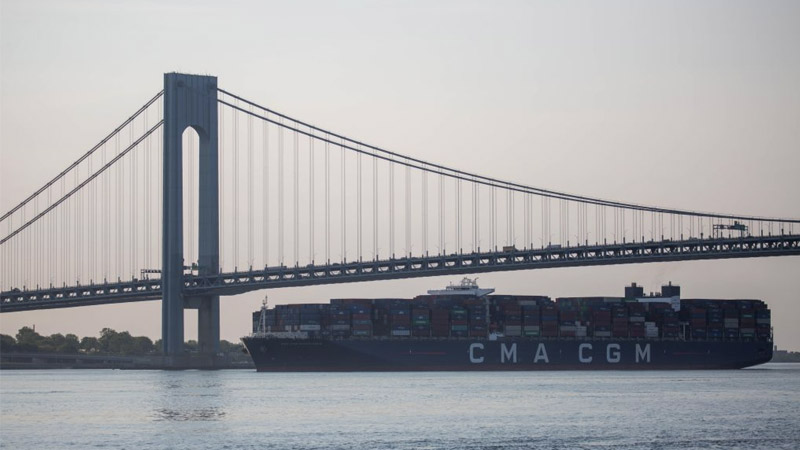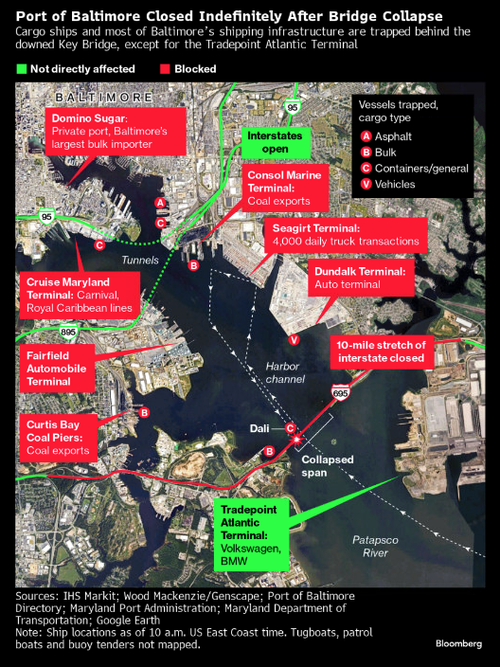Trending
Container Ship Reportedly ‘Lost Power’ In NYC Harbor, Right Before Verrazzano-Narrows Bridge

A massive container ship reportedly lost power on the Upper New York Bay – just before the Verrazzano-Narrows Bridge connecting the New York City boroughs of Staten Island and Brooklyn.
According to Captain John Konrad, CEO of gCaptain, a New York City tugboat captain informed him that the 354-meter container ship APL QINGDAO “lost power while transiting New York harbor.”
“They had 3 escort tugs but 3 more were needed to bring her under control. They regained power & were brought to anchor near the verrazano bridge,” the tugboat captain told Konrad.
BREAKING: A NY tugboat captain has reported to @gCaptain “container ship APL QINGDAO lost power while transiting New York harbor. They had 3 escort tugs but 3 more were needed to bring her under control. They regained power & were brought to anchor near the verrazano bridge” pic.twitter.com/Z2IP04xmLs
— John Ʌ Konrad V (@johnkonrad) April 7, 2024
Konrad said the vessel is registered in Malta and is owned and operated by a major French shipping company.
The ship is registered in Malta and is owned and operated by the large French shipping company @cmacgm pic.twitter.com/susotOdB2i
— John Ʌ Konrad V (@johnkonrad) April 7, 2024
He did note, “We are still waiting for confirmation on the incident.”
Adding validity to Konrad’s report, the vessel’s AIS tracking data shows it abruptly dropped anchor late Friday night – just before the 13,700-foot suspension bridge. As of Sunday morning, the vessel’s navigational status is “anchored.”
The incident comes nearly two weeks after a container ship lost power and collapsed the 1.6-mile-long Francis Scott Key Bridge in Baltimore, Maryland, paralyzing the Port of Baltimore.

“While the Verrazzano shares some characteristics with the Key Bridge, there are also important differences,” an opinion piece in the Wall Street Journal recently read, adding:
“First, its massive vertical supports are positioned much closer to land than the Key Bridge’s—1,000 feet away from the harbor’s navigation channel—making them considerably less likely to be hit by an errant vessel. The towers also are surrounded by rock islands, which would force any ship heading toward the supports to run aground before striking the tower. Additional safety projects have further hardened protections, even adding an air gap sensor system that detects vertical clearances between the bridge and large vessels passing underneath.”
The collapse of the Baltimore bridge has sparked discussions in corporate media about America’s vulnerable infrastructure. Within government, high-level officials are likely concerned about terrorists crippling the nation through a series of infrastructure attacks. Maybe it’s time the US government vet all foreign crews of commercial vessels entering America’s waters…
Read the full article here


















